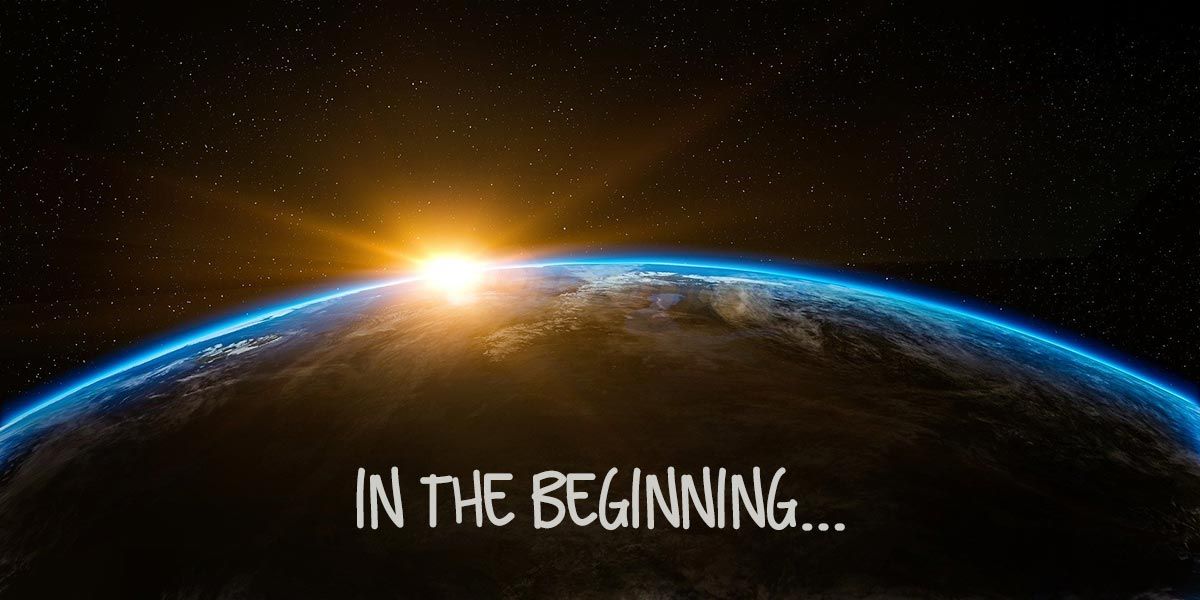Words Make Worlds

CrossOver reflection for Week 51 • Beginning November 24, 2019
We Make the Road by Walking, Chapter 12
Rev. Katie Ladd
Words make worlds. They are the DNA of meaning. Did someone you deeply admired ever highly praise you? How did you feel? Were you ever called a — as a child or as an adult — that left you feeling ashamed or like you were nothing? Words make worlds. Words make worlds beautiful, and they make them unbearable. It is genius that our origin story begins with God speaking creation into being. It is no coincidence in John’s Gospel that we have a new creation story that says, “In the beginning was the Word….” Words make worlds. String words together into stories and that is where we find deep and transformational meaning.
Sadly, too many Christians spend too much time worrying about the facts in the Bible. While there are most certainly facts in the Bible, they aren’t the purpose of the Bible. This is an important distinction. The Bible is a story about meaning that creates meaning; it is an inquiry into why; it is not primarily a report of what. Again, in Genesis, Christians often focus on the fall, and we argue about the creation story. When we do, we miss a key component — the why. Why did God create? The story tells us, but we miss it. God creates us for communion — to reside in God’s good garden in peace and covenant community together and with the Divine. Sabbath is the purpose of creation. In our squabbles about the what and the how we miss the meaning in the words.
The Bible invites us into new worlds created by our spiritual ancestors that tell us about God’s faithful acts to and for creation. It invites us to explore hard things like war, power, greed, loss, and tragedy. It also offers us glimpses of what God’s good world might include. It is a love letter to God and from God being worked out in the mess of human frailty.
Chapter 12 of Brian McLaren’s “We Make the World by Walking” is called “Stories that Shape Us.” In it, he says, “…it’s easy to miss the point of ancient stories. Those stories didn’t merely aim, like a modern textbook, to pass on factual information. They sought people’s formation by engaging their interpretive imagination” (52).
As a pastor, I’ve heard many people struggle with their faith because they simply can’t believe (that is, think something is correct) what they’ve read in the Bible. They can’t agree with it. This, people think, means they must walk away from Christianity. However, agreement isn’t the goal of sacred story. The truth of a story is not found in its accuracy to facts. I encourage people struggling with faith to change their definition of belief to trust. Trust in the stories to lead us to someplace new. Trust the stories to transform our hearts and our lives. Trust in the wisdom of the ancients. It will create new worlds.
There is much to know about the Bible, its timeline, archaeology, and history. Such things should not be discounted, but none of those are the locus of salvation and transformation. Jesus did not call us to think better; he invited us to follow him. His primary commandment was to love, and love is all about encounter and meaning and purpose and communion. When I say that my dad was the best dad in the history of all dads, no one wants to fight me for being factually inaccurate. It is a statement of love, and everyone seems to understand that. It is 100% true even if it is not factual (but, let’s face it, it is factual).
I invite you to let the Bible form rather than inform. Let the words build worlds of meaning inside of you. There is an infinite and sacred trove of wisdom in the Bible, but it is not an easy book. The words do not always settle easily in 21st-century minds. Wrestle with them and let them wrestle with you, as Jacob and the night stranger wrestled together so many years ago. Like him, come away changed, perhaps even limping from the struggle. Like Jacob, be transformed by encounters with the Divine.
Rev. Katie Ladd is the pastor of Queen Anne United Methodist Church in Seattle, Washington. She is also the founder and director of The Well.